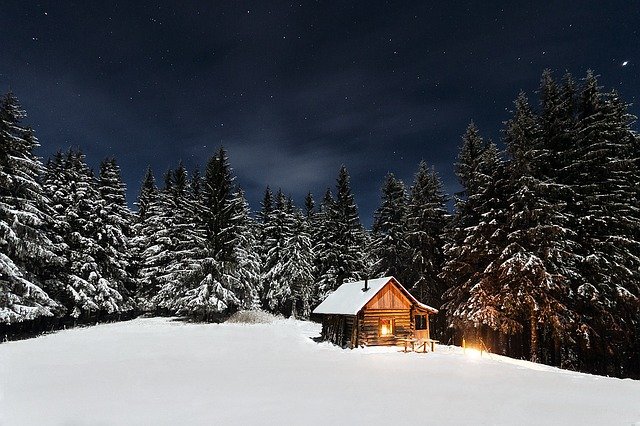
At this time when some people are chafing at covid-19 restrictions, I’m reminded of how people responded to the deprivations of the Great Depression. There were few opportunities for employment, and even fewer government handouts. My grandparents, Abram and Susana Funk, lived in a remote area of Manitoba. They were surrounded by their 14 offspring, all on small acreages. Having grown up on marginally productive land, the Funks had developed a robust work ethic, learned to laugh at adversity, and at times to risk just to survive.
I especially like to think of my Uncle Jim. With coal black hair and a powerful physique, he was the most audacious of an audacious bunch. I once asked his wife, my Aunt Betty, if he had requested a kiss on their first date. “Oh no!” she said, laughing with evident pleasure at the memory. “He didn’t ask. He just did it.” By the winter of 1936 they were already married, had three children, and a fourth was well on the way.
Having shared food with hungry destitute men looking for work, the supply in their root cellar had been considerably depleted. Uncle Jim knew he needed to shoot a deer. When he rose early on January 19th, the mercury had plummeted to below zero F over night and snow was falling relentlessly. He placed paper and kindling in the stove and lit the fire, then hurried out into the frigid cold to feed the dozen chickens, Dolly the milk cow, several rabbits and Ned, his faithful appaloosa mare. After milking Dolly he collected the eggs and carried in enough wood for the day. His pretty blond wife was already mixing dough to bake brown bread.
Like his five brothers, Uncle Jim was skilled with axe, saw and rifle. He had been in the woods many days in summer and fall, cutting fire wood to sell in Winnipeg. His meager income had enabled them to buy flour and other essentials, but now there was little money left in the tin coffee can kept under their bed. In spite of the cold and snow, he’d have to hunt today.
He had donned his thick grey Stanfield underwear upon rising. Now, wearing a heavy parka with a fur lined hood, his coal black moustache and deeply sun and wind browned face gave him the appearance of an Inuit hunter setting out to search for polar bears. Uncle Jim kissed Aunt Betty, who said, “it’s not a good day for hunting. Don’t take any foolish risks.”
The wind was less brisk now and the snow lighter as he and Ned set out for a meadow about an hour from home. There at the edge of a stand of poplars, he tied a canvas tarp between two trees down wind from where he expected deer. Using the tarp as shelter against the weather, he and the appaloosa settled in and waited patiently. He had just poured himself a cup of strong black coffee from a flask when two young bucks emerged cautiously from among the trees on the opposite side of the clearing. They pawed at the snow while their noses sniffed anxiously.
Uncle Jim raised his rifle slowly and fired two shots. One buck crumpled and the other fled. After gutting the deer, he hoisted it to the back of Ned, and holding the reins, set off on foot beside the horse.
The following morning, after chores and breakfast with his family, he heard a car door bang shut. Looking out a window, he realized it was Constable Monroe, the Mountie stationed in Steinbach.
He was surprised when the constable greeted him with, “Mr. Funk, we have a report that you’ve been hunting out of season. Do you have any game in your barn?” Not wanting to lie, Uncle Jim said, “I have rabbits in there.” To this the Mountie replied, “I’ll have to look.” Concerned the deer would be taken and he’d be fined, Uncle Jim said nothing.
The Constable had been in the force many years and understood the plight of these rural people who had little income. When he returned he said, “Mr. Funk, that’s a mighty big rabbit you have hanging there. I hope you and your family enjoy it.” A hint of a smile crossed his face and then he departed.
